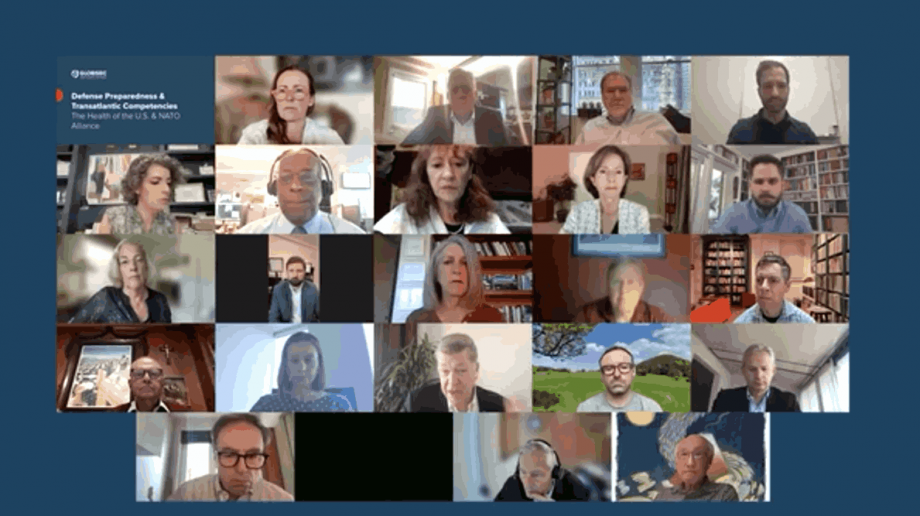On May 22, the GLOBSEC US Foundation hosted a timely virtual discussion on the state of Transatlantic and NATO military preparedness, along with innovation and production capacities during times of significant stress. This timely conversation coincided with the Congressional focus on the National Defense Authorization Act, bringing together key voices from both the US and Europe.
The event was chaired by Steve Clemons in his role as co-chair of the GLOBSEC USA Initiative. The panel featured a lineup of distinguished experts, including:
- Rep. Jim Himes (D-CT), Ranking Member, Select Committee on Intelligence
- Rep. Brad Wenstrup (R-OH), Member, Select Committee on Intelligence
- Rep. Stacey Plaskett (D-VI), Member, Select Committee on Intelligence
- Rep. Jake Auchincloss (D-MA), Member of the Select Committee on the Chinese Communist Party
- Former Congressman Adam Kinzinger (R-IL)
- The Hon. Rihard Kols, Chairman of the Foreign Relations Committee of the Latvian Parliament (Saeima)
- Amb. Katarína Mathernová, EU Ambassador to Ukraine
- Gen. (ret.) Denis Mercier, former Chief of the French Air Force and Supreme Allied Commander for Transformation
The key recommendations and takeaways from the event are:
- Enhancing the Effectiveness of the Alliance
- Ensure the US remains proactive and vigilant about maintaining strong alliances, particularly within NATO, and tighten relationships with NATO countries to ensure they do not overly rely on the US. Strengthen NATO through its original framework: Partnership for Peace.
- Improve intelligence and awareness of adversaries’ tactics, enhancing the ability to deter and respond to misinformation and cyber threats.
- Strengthen public-private partnerships to incentivize innovation and address defense needs effectively.
- Encourage member states to meet their defense spending commitments.
- Ensure the US remains proactive and vigilant about maintaining strong alliances, particularly within NATO, and tighten relationships with NATO countries to ensure they do not overly rely on the US. Strengthen NATO through its original framework: Partnership for Peace.
- Boosting Innovation and Industrial Capacity
- Foster closer relationships between private and public sectors to drive innovation in defense technologies.
- Invest in domestic manufacturing to reduce dependency on external sources (such as China) and enhance resilience in critical sectors.
- Invest in manufacturing capabilities and scale production as needed, focusing on emerging technologies like drones and cyber defense. This will enable the EU to develop its own defense industry, separate but cooperative with the US.
- Foster closer relationships between private and public sectors to drive innovation in defense technologies.
- Supporting Ukraine and Addressing Blind Spots
- Increase and expedite support for Ukraine, using frozen Russian assets and interest generated from these assets to provide financial assistance for both military and reconstruction efforts.
- Address the blind spots in NATO defense production and supply chains, ensuring a robust domestic manufacturing base for critical needs and ongoing support to Ukraine.
- Increase and expedite support for Ukraine, using frozen Russian assets and interest generated from these assets to provide financial assistance for both military and reconstruction efforts.
If you missed the live event, you can watch the full recording below. For insights from the speakers, follow the individual links provided for each interview.
- Interview with Ambassador Mathernová
- Interview with Former Congressman Kinzinger
- Interview with Gen. (ret.) Mercier and Hon. Rihard Kols
- Interview with Rep. Auchincloss
- Interview with Rep. Himes
- Interview with Rep. Plaskett
- Interview with Rep. Wenstrup

